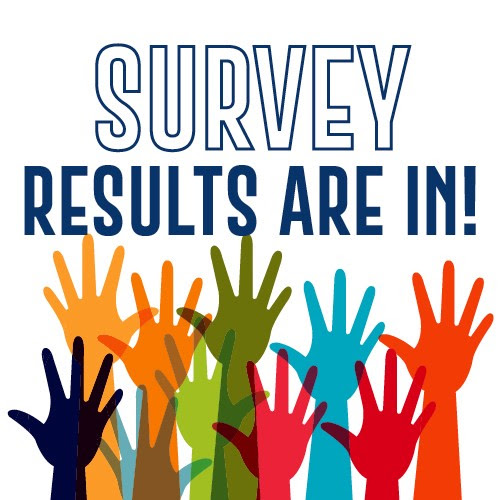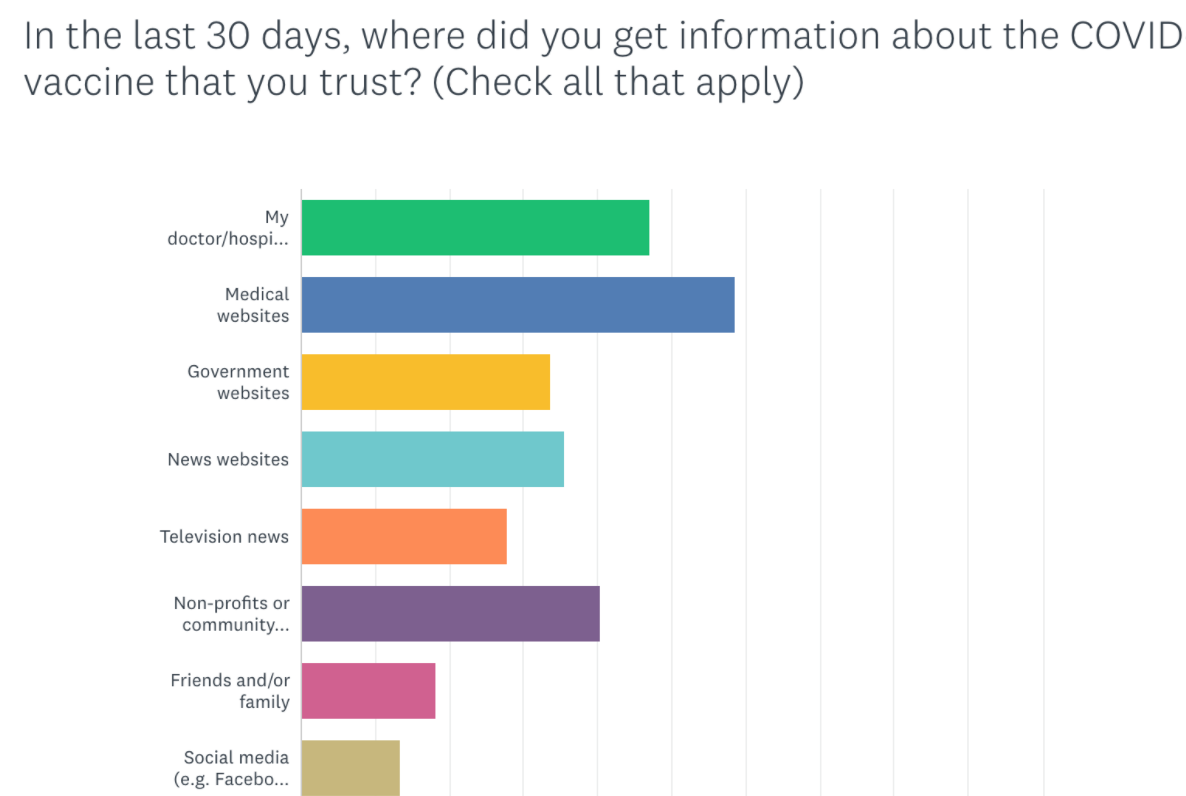Recently, we sent out a survey to our community to get an idea about COVID-19 vaccines and their impact among immunocompromised people with liver disease. We knew we were posing this survey to our community, which is likely more informed and focused on fatty liver disease, so these results should be considered in that context. Though we did not achieve statistical significance with any of our findings, thanks to you, we got over 100 responses and found some interesting, yet not completely surprising, insights. Click on the image below to see the top line results from the survey.
For starters, more than 80% of respondents reported being vaccinated. This is a full 30% higher than the national rate, which currently stands at 50.9%, and was great news to us! It is critically important that we continue to promote vaccination, and we are happy to see that our community is well ahead of the curve. We also found that the top three trusted sources among respondents for information about the COVID-19 vaccine were medical websites, doctors/hospitals/clinics, and non-profits or community organizations. It is reassuring to see that even though the medical system leaves much to be desired for the NAFLD/NASH population, we continue to trust their judgment and take their science-backed advice. Click on the graphic below for a larger version.
It is interesting to note that although we see a lot of activity on social media sites, and there is a common belief that people are getting their medical information through those channels, we see that it isn’t a trusted source for diagnosed people. A subject for future analysis will be to understand how the patient community’s use of information might differ from the general population.
Diving a bit deeper, we broke down the respondents into different groups to compare their responses. While 59% of all respondents indicated that they had been told by a health professional that their immune system was weakened or compromised, only slightly more (62%) of those who indicated they had liver disease or a liver transplant were informed of their immunocompromised state. This means almost 40% of liver disease patients are being informed of their immunocompromised state by their doctors. The rest are probably aware from doing their own research or from hearing from our community or other trusted sources. Even though medical professionals are not making all liver patients aware of their immunocompromised states, we found that patients are still more likely to be aware of their potential for reduced vaccine efficacy because of their immunocompromised state and more likely to want to get a booster shot. It may be that because liver patients are used to doing lots of research on their own to educate and inform themselves about their disease, that they are able to put these skills to use to learn about their risk of COVID and the complicated nature of the vaccine. Click on the graphics below for a larger version.

General Population Liver Population
These findings bring home the message that it is crucial to identify individuals with asymptomatic NAFLD/NASH, as awareness of their increased risk can only be achieved if they know they are affected by an immunocompromising condition. Screening is a necessary path to pursue in the fight against NAFLD/NASH, especially considering the added risk of COVID for people who are immunocompromised and unaware.










